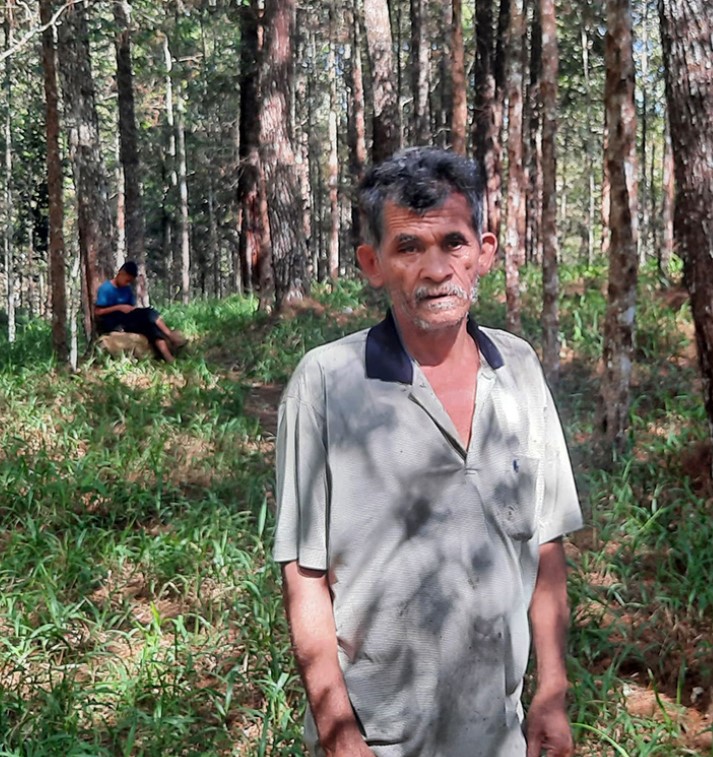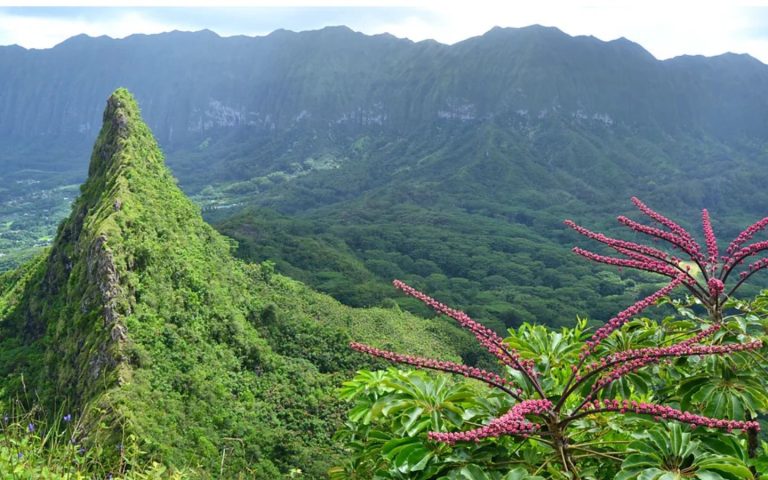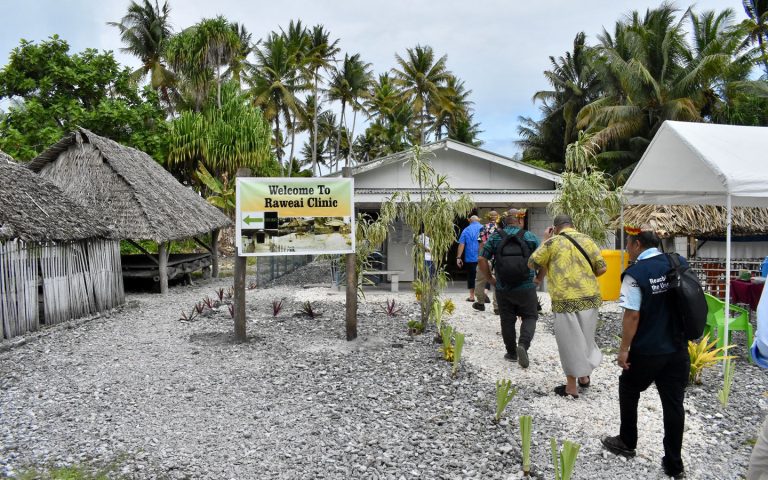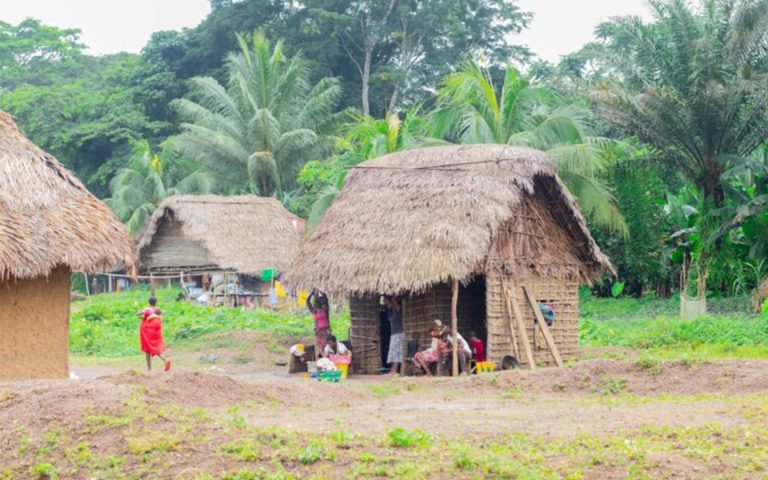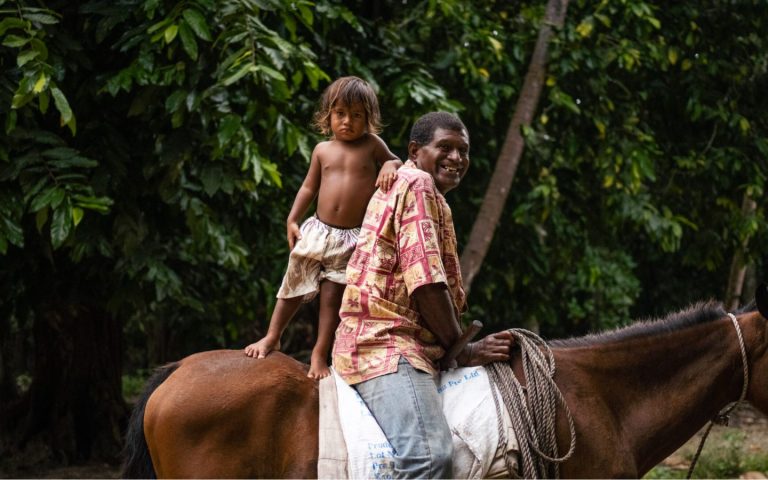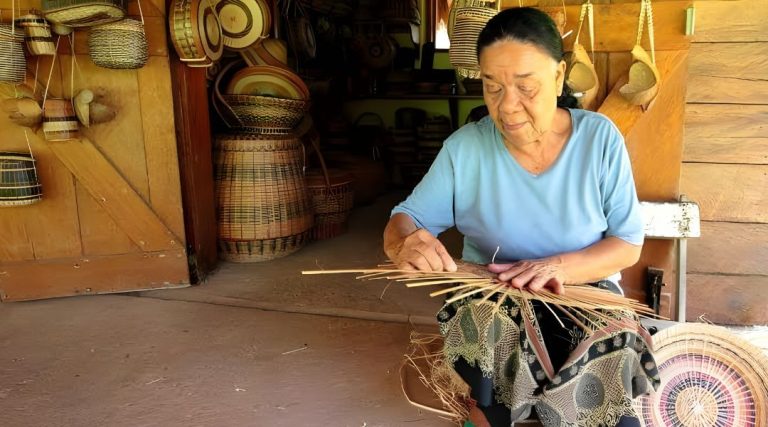Image by Barita News Lumbanbatu. Retrieved from news.mongabay.com
Excerpt from news.mongabay.com
On the Indonesian island of Sumatra lives a man named Efron Simanjuntak. With a stern face and thick, graying mustache, he roams the forests near the village of Bona ni Dolok. Once a player in the region’s illegal logging industry, he’s now a dedicated forest protector.
Efron, now 63, used to cut down trees illegally outside a nearby protected area. He also acted as a middleman, and his role was crucial in ensuring safety at the logging site, where he could earn several hundred dollars in a single operation, more than the annual pay at the minimum wage for this region.
Although he didn’t wield a chainsaw himself, Efron played a key role in directing the work. He would go out with only a machete to mark and map out the trees to be felled. These were typically mature old giants: meranti (Shorea leprosula), Merkus or Sumatran pine (Pinus merkusii) and Monterrey pine (Pinus radiata). All were highly valued for the quality of their timber and their size. Efron could sell meranti, a popular substitute for teak, at up to $76 per cubic meter (about 18 cents per board foot), for which he’d get a cut of at least $6.
The process required stealth and precision, and carried risks, forcing Efron to navigate the dense forest and coordinate efforts to avoid accidents and maximize efficiency.
“The buyers usually came from Silakitang, Siborong-borong, before distributing it to other cities in North Sumatra, like Medan and Siantar,” Efron says.
Then his luck ran out. In 2017, he was caught by police for selling Merkus and Monterrey pine resin along with teak and meranti timber from outside the protected area.

